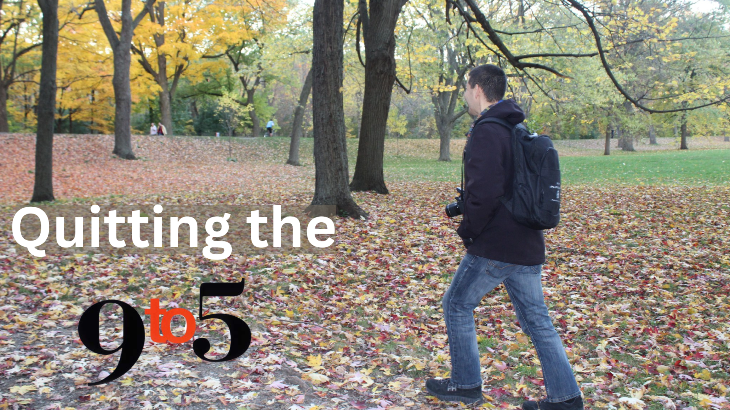
There are three ways to build wealth:
- Working a regular job and investing the savings
- Real estate investment
- Creating a business
Today I will talk about having a regular job and investing the savings.
We are trained to be good employees
Most of us are trained to be employees, from the moment we go into grammar school to the moment we finish our university studies. The goal of our education is to be able to get a job from a well-established company, work for 40 years, save enough to retire at 65 and enjoy life until we die at age 81.
We are taught to be dependent
We are never taught to be independent thinkers, we are never taught to take calculated risks or crazy risks, how to go against the grain, how to depend on our own abilities. Instead, we are taught to be dependent on big corporations and the government.
We are at the mercy of employers
Because we are herded like cattle towards life as employees and because any other possible way of making a living has been erased out of our imagination, competition for the few jobs that are available puts the employee at the mercy of the employer.
Many demands for little money
We are overqualified servants of the system and when we apply for a job we find that there are hundreds of people competing for the same job. The employer asks for a ridiculous level of competence; fluency in at least two languages, proficiency in different software applications, availability to work odd hours, four years of college education, five years of work experience, and so on. All that for the amazing pay of $14.50/h with the possibility of a $0.50 salary increase after the first year.
The price of safety nets
When a person finally gets their check, then they discover that the government safety net is not free. There are all kinds of deductions such as unemployment insurance, corporate pension plan, health service, government pension plan, and a few others.
Taxes, taxes, taxes
When all the contributions towards our safety net have been deducted from our paychecks, then we pay the taxes: federal taxes, provincial taxes, city taxes, school taxes, sales taxes, cigarette taxes, alcohol taxes, gasoline taxes, and so on.
Financial advisers are illusionists
After all the safety net deductions and all the taxes, we get approached by a financial adviser who tells us that we should save at least 10% of our income for retirement, that we should save for our dream home, save for the education of our children. Eventually, we believe all the lies spun by the financial adviser and we entrust our savings to him. Soon thereafter we discovered that all the profits have been eaten away by management fees, service fees, trailer fees, commissions and so on.
We are original, like everybody else
If we succeed in having any discretionary income, this little amount becomes the battlefield of advertisers, people who persuade us to spend our money buying their products and services. Advertisers tell us how to look sexy, how to become smarter, how to become independent, and how to be original like everybody else. And we fall for it to the extent that we end up borrowing and getting into debt to become the character described to us in the media.
How to break from the 9 to 5
The only way out is to start breaking away, little by little, or radically, from this indoctrination. To stop believing that there is a safety net provided by the government. To determine that we are on our own and that there is no one out there to help us. To become responsible for our future and not to trust the system.
Here are some suggestions to break away from the regular 9 to 5 lifestyle and discover something different.
- Build some cash reserves for emergencies. The bigger our cash reserve, the more thinking space we can have, the more independent we become from the regular day-to-day drudgery, the more possibilities we have to try new things. Most financial advisors suggest three to six month emergency fund. The 2020 COVID pandemic persuaded me that a one-year emergency fund is a desirable goal.
- Start educating ourselves about investments. Sometimes we spend months planning our two-week vacation, we read books, we do internet searches, we ask questions. But when it comes to our financial life, we blindly trust our future to someone else who doesn’t care about us, to someone else who is more concerned about his commission. We have to take responsibility and get a minimum of financial education. I am available for consulting if anyone wants to talk about how to position their investments.
- Create a radical plan to become financially independent in 10 years or less. This is quite possible, the biggest barrier is our mental roadblocks.
- Start living life on our terms.
Most of the future articles in this blog will be focusing on how to increase our earning potential through investments.
Other personal finance blog posts
- TFSA will be increase to $6,500 for 2023
- NFTs were great for the artists, but bad for investors
- Save money and save the environment, Dump your car
